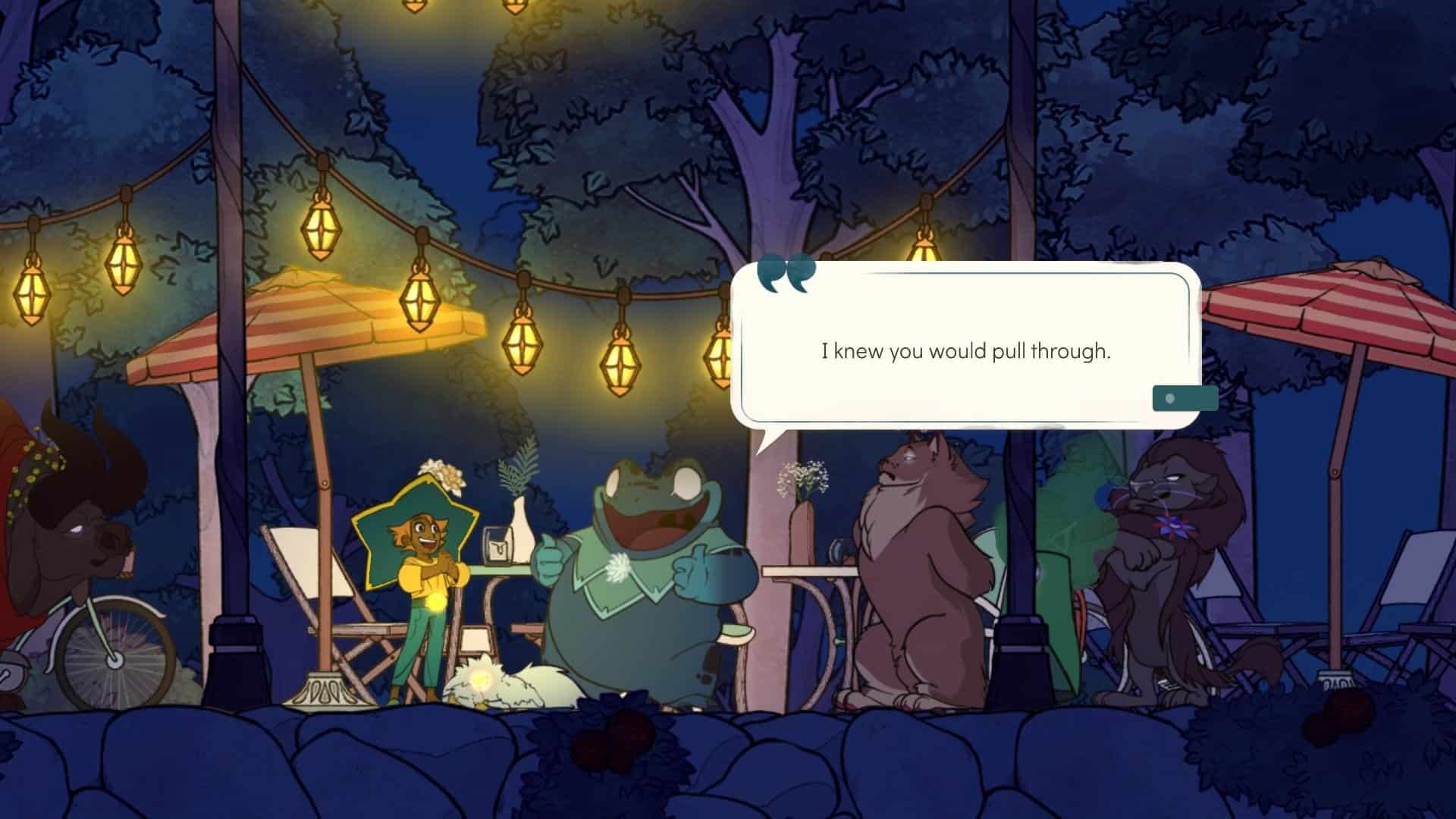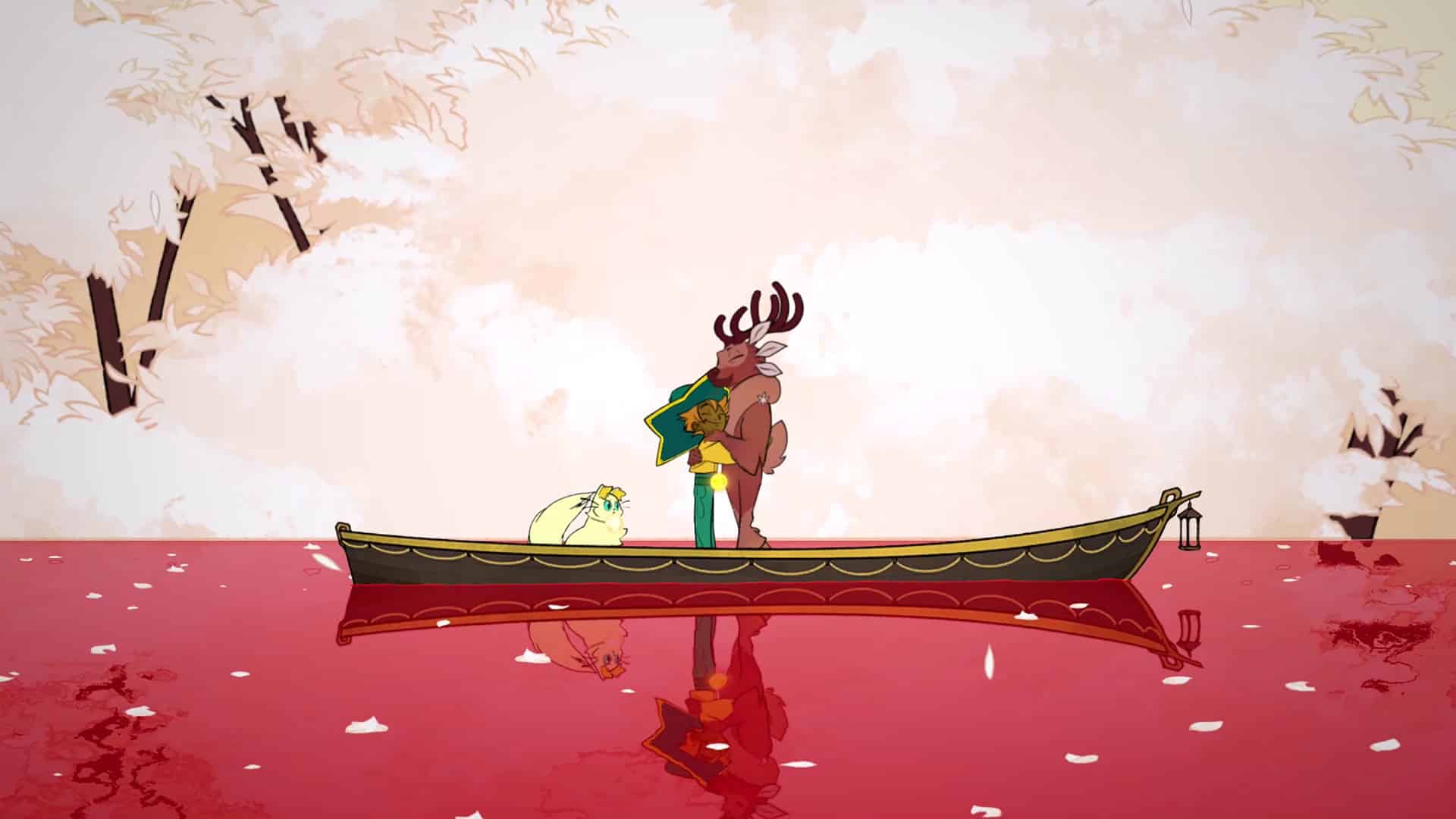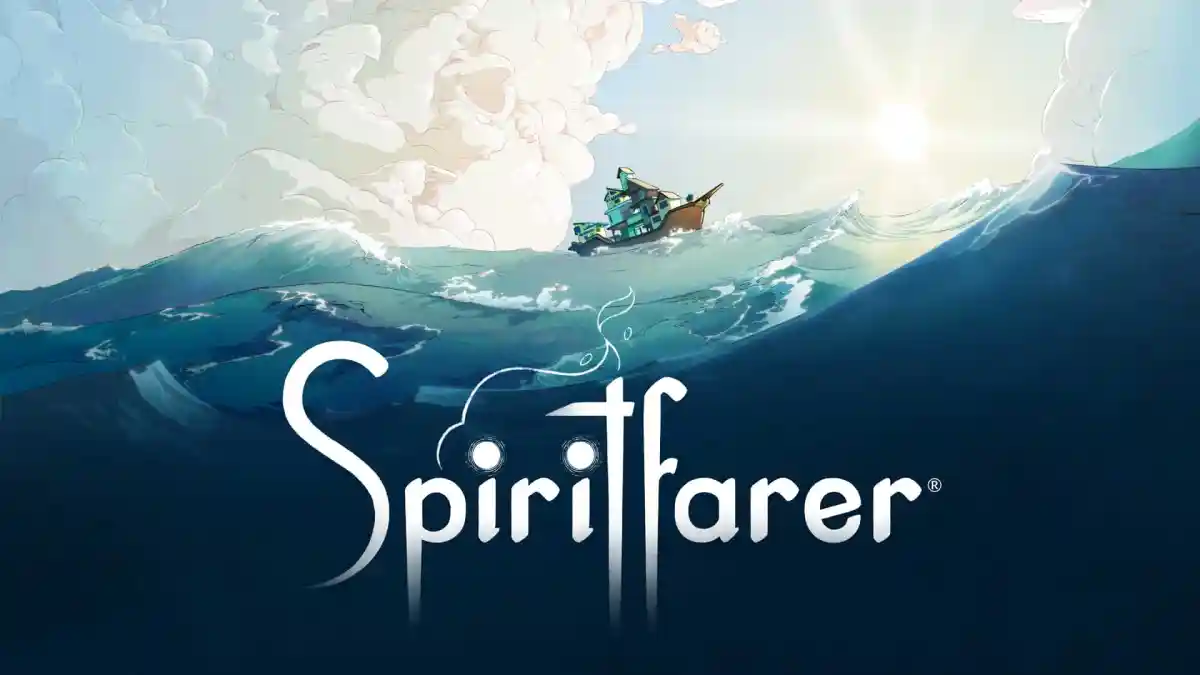This article contains spoilers for Spiritfarer from Thunder Lotus Games.
Spiritfarer is a remarkable game that takes dozens of familiar elements, discovers how they fit together like a perfectly segmented puzzle, and then uses them to create an overarching portrait of immense power and beauty. The third game from developer Thunder Lotus, which previously delivered the gorgeous and focused Jotun and Sundered, Spiritfarer merges a fantastic gameplay loop with one of the most devastating and impactful takes on death, loss, and what it means to move on that I’ve ever experienced in a video game.
You play as Stella who, alongside her adorable cat Daffodil, has been chosen to take over the title role from Charon, the ferryman from Greek mythology who aids the passage of dead souls from this realm into the next. Though Charon wasn’t really the talkative type, Stella’s warmth and compassion make her boat feel less like an ominous nexus to the afterlife and more like a bustling village from Animal Crossing.
The empty decks and lonely nature of your vessel quickly change once you start accumulating passengers, all of whom were connected to you in some way or another in your past life. The bonds you form with this colorful cast act as the heart of Spiritfarer. Not only in how they supply you with quests, objectives, and purpose on your seafaring journey, but in how learning about them, their views on life, and what comes afterwards adds to the game’s excellent tableau on death.
But even with a bustling crew full of life, you’ll need to continue building out your boat in order to transform it into something that feels like a home. For this, Spiritfarer has you constantly expanding your vessel and crafting various structures on its deck, all of which seem to feed into one another and serve some purpose in further growing your bond with the world and its inhabitants. Fitting together the dozens of different adaptable structures via a simple Tetris-like grid means that your boat will quickly resemble a dream-like shanty town.
A garden allows you to plant, maintain, and ultimately harvest the seeds you come across in the world. Those crops can be used as parts of recipes in the kitchen, which can be fed to your crew to raise their happiness. As you explore the world, you’ll find trees to chop down for logs, rocks to smash open for minerals, and wrecked ships to salvage for cargo. A sawmill can cut the wood into planks, a foundry can melt the minerals into ingots, and a loom will help you weave some of that cargo into fabrics. All of these actions are done with simple, timing-based button presses that kept me engaged and never wore out their welcome.
Aside from the constant resource management flow, Spiritfarer is filled with brief challenges that make great use of the game’s simple-but-effective platforming controls. From literally catching lightning in a bottle as you sail through a thunderstorm, to chasing down spirits across your deck, to engaging in some playful D&D-esque LARPing, each distraction feels great not only because you’re gaining resources, but also because the physical act of movement in Spiritfarer is a joy. In typical Metroidvania fashion, Stella gains new movement abilities like a double jump, float, and dash that allow you to not only reach new areas, but become more successful at these mini-games.

None of these aforementioned tasks ever feel like busywork because you’re always gaining something from them. And as you sail across the map, discovering new islands and revisiting old ones once you have fresh abilities, you spend your time on the seas managing which of these activities you want to engage in. There’s a pretty quick day/night cycle that culminates in having to go to bed before resuming activities the following morning, but it never feels like you’re punished by not accomplishing something in a given day. It’s the afterlife, after all — there’s no need to rush things.
But amongst all of these activities, the mechanic that stands out most is the simple ability to give any of your companions a hug. These moments are lovingly animated and punctuate the genuine bond that is formed between you and your crewmates throughout your journey. But these hugs aren’t just there as a cute aside. The entire crux of the game is to help out your friends to the point where they’re ready to move on and fully welcome whatever might come next. Despite Spiritfarer’s laid-back pace, all good things eventually come to an end, and it’s these endings that stand as the game’s highest moments.
Once a character is ready, the two of you hop into a small rowboat, and you ferry them to the Everdoor, which acts as a gateway to whatever might lie beyond. On this ride, they share their final thoughts on life, death, loss, and what comes next. Sometimes they’re optimistic and feel like they accomplished everything they needed to in the time they were given. Other times they’re so emotionally drained and broken that they can’t fathom continuing on, so they just resign themselves to stepping through the gate. The writing across the game is universally excellent, but these final monologues really stand out.

Regardless of the situation, as you both stand at the precipice unsure of how to say goodbye, Stella inevitably runs up to them and gives them one final hug. One last warm embrace that not only lets them know that everything will be okay, but also gives Stella a kind of closure that’s oftentimes hard to come by in life (save for one particularly devastating departure). And with that, they transform into light and fade away, and your crew is permanently down one member.
This loop reminded me a lot of Supergiant’s Pyre, which I wrote about earlier this year. Both games do an incredible job of fleshing out their characters and growing the bonds between you and your respective crews. But these bonds also culminate in ultimately having to say goodbye to them, for the good of their futures. The quality of writing in both games makes the moment of saying goodbye all the more bittersweet, especially in the case of Spiritfarer and those final, meaningful embraces. These moments never stop being simultaneously devastating and uplifting.
Spiritfarer combines elements of some of my favorite games into a package that shouldn’t work, but ultimately does so fantastically. It has the town-building and resource management of Animal Crossing and Stardew Valley, the Metroidvania exploration curve of the Ori games and the classic PlayStation Tomba! series, the engaging mini-games of WarioWare, the poignant take on death of Pyre and Outer Wilds, and a meaningful focus on physical warmth and contact that I haven’t seen since Ico’s hand-holding. 2020 has been a remarkable year so far for video games, and Spiritfarer is one of the major reasons why.






Published: Sep 1, 2020 12:30 pm